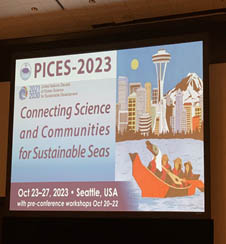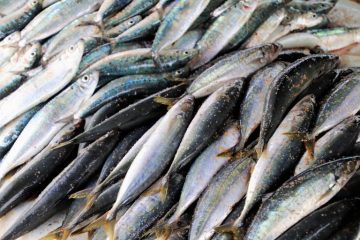PICES Symposium brought together science from all around the world
Several IOF members presented at the symposium, with Research Associate Dr. Anna McLaskey, winning the best oral presentation in the Biological Oceanography Committee section.
Climate change will have an adverse impact on trophic amplification in marine food webs
Climate-driven changes in ocean environmental conditions — ocean warming, deoxygenation and acidification — are projected to affect the physiological functions of marine organisms, their geographic distributions, biological life cycles and total biomass.
New study reveals extent of labor abuse and illegal fishing risks among fishing fleets
A new modeling approach combines machine learning and human insights to map the regions and ports most at risk for illicit practices, like forced labor or illegal catch, and identifies opportunities for mitigating such risks.
Nearly half of countries’ shared fish stocks are on the move due to climate change, prompting dispute concerns
The study tracked the shifting ranges of 9,132 transboundary fish stocks, which account for 80 per cent of catch taken from the world’s EEZs, starting in 2006 and projecting to the year 2100.
Coral reefs are 50% less able to provide food, jobs, and climate protection than in 1950s, putting millions at risk
Global coverage of living corals had declined by about half since the 1950s and consequently, the diversity of species had also declined, by more than 60%.
2021 World Ocean Week – June 7-11
We asked ocean researchers from the IOF to envision how the target of protecting at least 30% of the world’s oceans by 2030 might be achieved.
The Blue Economy is more than just resources – it also has to focus on social equity and governance
A recent UBC-led study found that socioeconomic and governance conditions such as national stability, corruption and human rights greatly affect the ability to achieve a Blue Economy.

